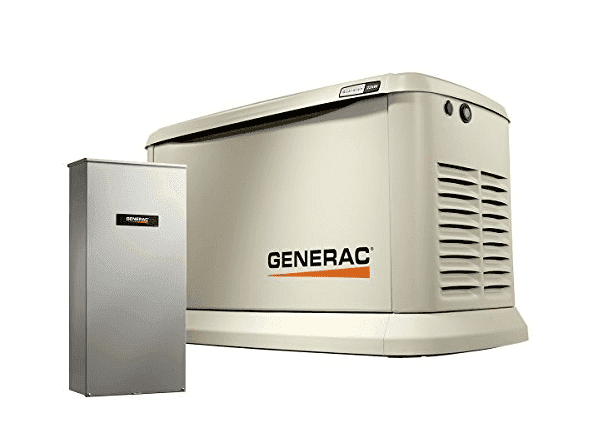When there is a power or an electrical outage such as in the case of a hurricane or heavy storm. You will be bound to turn on your home generator, lock up your doors and stay inside your home with your family. But, what happens when you try to turn on your generator and nothing happens? or when your generator is not working as expected. Well, this can really be frustrating because you don’t know how long before things starts getting messy and out of hand. Learn More About Purchasing a Generator in our Guide To Buying a Home Generator.
While there are several reasons your generator might not be working, in this article, we have a few common ones and tips on how to solve these generator problems.
List of common generator problems and solutions
While any commercial generator might experience a variety of difficulties, becoming familiar with their solution will help you get it back up and running fast. To avoid costly damages and downtime, it’s critical to understand how your generator operates and know how to diagnose diesel or petrol generator difficulties.
1. Generator Battery Failure
The most frequent generator problem is battery failure. As batteries age, they lose capacity and provide less and less power. Knowing how long your generator’s battery will last will allow you to replace it before it fails.
Tips:
Before using your generator, always ensure the batteries, chargers, and all cables and connections going to and from the battery are in excellent working order. Clear and tighten connections on a regular basis, and clean any sulfation buildup from the battery plates. Lead sulphates can prohibit the battery from providing a significant current, resulting in system failures that could have been avoided.
2. Generator Failure to Start
Check the automatic operation controls are set if your generator fails to start. For the generator to automatically kick in when needed, the primary control switch must be in the “off/reset” position. Your generator’s automatic settings may have been switched off if someone hits the emergency stop button or sets off alarms on the control switch.
Tips:
If your generator has been serviced, ensure sure the automated controls are reset before the generator is used again. If you’re still having trouble starting your diesel generator, double-check all connections to ensure the equipment is in good operating order.
3. Generator Stalling During Operations
Perhaps the only thing more annoying for a generator owner than having a generator not start at all is having it repeatedly stall shortly after starting.
When the power is out and you need to light things up in your house to calm your family down, the worst thing is a generator that keeps giving you false hope that it’s going to run and promptly stalls, dashing your dreams away from you.
Tips:
A variety of reasons might be at fault if your generator starts up but then stops working. In natural gas generators, for example, fouled spark plugs might prohibit the unit from producing enough power to keep running. If your generator’s spark plugs are damaged or fractured, you should replace them after 100 hours of use. Spark plug failure is mostly a problem with natural gas generators, as diesel generators lack spark plugs.
Also, make sure the generator’s filters are clean and functioning properly. Oil filters remove impurities from the machine’s engine oil, which would otherwise build up and wear down the engine over time. Clean air is let into the machine by air filters, which compresses and burns the fuel. Clean or replace either of these filters if they are unclean or worn to keep your generator functioning properly.
4. Generator Has Clogged Fuel Lines
Clogged fuel lines are one of the most common reasons that your diesel generator’s fuel may cease operating. The diesel can flow into the engine through fuel lines. They will pass an insufficient quantity of gasoline if they are constrained.
Tips:
Oxidation, which renders the diesel filthy and creates sludge accumulation in the lines, is a common cause of clogged fuel lines. While oxidation is an unavoidable process, effective fuel treatment and maintenance may mitigate its effects and help your gasoline last longer.
5. Generator Low on Coolant
Coolant depletion might be the cause of your generator engine overheating.
Coolant is the liquid that keeps your generator cool by spreading heat throughout the engine and preventing components from freezing or overheating. The coolant helps to resist the high temperatures produced by your generator’s engine. The water in the coolant evaporates over time when it is in continual contact with those high temperatures, resulting in low levels. Fluid level inspections, as well as routine maintenance, may guarantee that your engine has the fluids it need.
Tips:
If your generator’s coolant levels are sufficient but it still overheats, it might be an indication of a more serious problem, such as damaged hoses and drive belts or filthy coolant blocking the radiator core.
Regular maintenance on a unit may frequently avoid oil, gasoline, or coolant leaks. When troubleshooting generator problems, it’s crucial to know what parts to look for and what fluid levels to check so you don’t run out of oil, coolant, or fuel.
6. Generator Leaking Oil, Fuel or Coolant
Loose components, degradation due to age, and improperly fitting components can all lead to leaking oil gaskets on a generator. Components can become loose as a result of vibration from a running generator or the use of non-genuine components that may not fit properly.
Tips:
If you follow up with regular fluid replacements but still have low levels, a leak is most likely to be responsible. Always inspect the tank pumps and gasoline lines for cracks during routine maintenance to ensure everything is in functioning condition.
Crankcase breathers, which assist remove undesirable gases from the engine, can cause oil leaks by creating a pool of oil. Installing a recirculating breather instead will avoid this leaking.
If your pump system breaks or you overfill the gasoline tank, you may have fuel leaks. Always check to see whether you’re filling the tank to the proper amount, and inspect your complete fuel system for leaks.
7. Generator Block heater hose failure
Block heater hose failures are one of the most typical causes of coolant leakage. By warming the coolant, block heaters aid in maintaining appropriate generator starting temperatures. The coolant then warms the engine, allowing it to run smoothly at lower temperatures while also putting less strain on the other components.
Tips:
Block heater hoses, on the other hand, may quickly wear out due to the high temperatures they produce. Coolant might seep into other parts of the machine due to worn hoses. Because rubber hoses can be damaged by high temperatures, silicone hoses should be used and replaced every three to four years.
AirPlus includes a Free 10 Year Parts & Labor Warranty & One Free Year of Generator Maintenance with 24 Hour Off-Site Monitoring With Every New, Installed Fixed Generac Generator We Sell!
8. Generator Wet Stacking
When it comes to diesel generators, wet stacking is another type of fluid leak that causes inefficiency. Oil, unburned gasoline, and condensed water build up in the exhaust system and leak out as a black, viscous material.
Tips:
A moist stacking problem can be resolved by burning off the extra fuel. Monitoring exhaust temperatures and implementing mechanisms for load bank testing and generator paralleling can also help prevent future wet stacking. This is typically a problem that only affects diesel generators, however it is frequently the cause of a diesel generator failing to operate at rated loads.
9. Generator Fuel Depletion
For diesel and natural gas generators, fuel depletion is a prevalent issue. Fuel gauges can occasionally fail to display accurate fuel levels, resulting in generators running out of fuel without your awareness. The generator’s mechanical gauges or fuel filters may become clogged with sludge, preventing it from correctly showing fuel levels or using all of the fuel you’ve supplied.
Tips:
Check your generator’s fuel levels manually before each usage to help prevent unexpected fuel depletion. It’s also a good idea to have on-site fuel storage or another easy way to receive extra gasoline when you need it. Finally, look for impurities such as dirt and water in your gasoline filters and lines.
10. Generator High Fuel Level Alarm
Overfilling a fuel tank can result in a variety of problems, including wet stacking and other leaks. When gasoline levels are too high, high fuel level sirens sound, alerting you to cease refilling to avoid overfilling the tank. While this is a useful and generally accurate function, it’s conceivable that the high fuel alert can sound erroneously when gasoline expands due to natural thermal expansion – such as on exceptionally hot days.
Tips:
As the fuel level drops to a suitable level, the alert may cease blaring on its own. Otherwise, as long as no actual difficulties are causing the alert, you can manually reset it.
Conclusion
If your generator still won’t start after looking through these typical problems, or if you’re unsure about your abilities to troubleshoot your generator, look for “professional generator repair services near me.“
Our expert service specialists at AirPlus have the skills and experience to assess your generator and fix it quickly. If your generator is beyond repair, we can also assist you in selecting a replacement.
If your generator won’t start, learn more about generator repair on our website or contact AirPlus at (571) 470-7235 to book a consultation.
.2309121422550.png)

